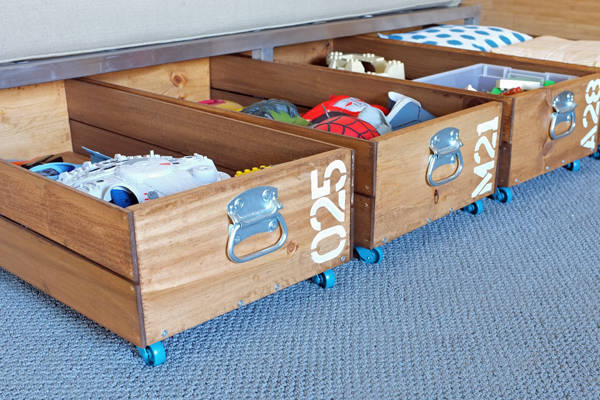There are plenty of choices available when you are looking for a home to buy. And one of them is a condominium. A condominium is usually a large property that is divided and sold as individual units. And compared to a detached home, owning a condo means you own your unit and a section of shared common areas, but you don’t own the land on which the building is built. Those who purchase condo units technically own everything inward their walls. All of the individual homeowners have shared rights to most common areas, such as the elevators, hallways, pools, gardens, clubhouses. Maintenance of these areas becomes the responsibility of a condominium association. Condos make a wonderful choice for potential homeowners looking for a property without having to worry about the maintenance and upkeep of a house and yard. Condos are an especially popular choice in high- demand, high- property value areas like vacation destinations and costly urban settings, because they are more affordable than detached homes. If you are in the market to buy a condo, there are some things that you need to consider before making that final decision.
The Location
The location of a condo is one of the prime considerations. You should find a condo that is located in a suitable place. It is vital to do some research on the area if you want to purchase the condo. Look at the accessibility of the condo. If you value convenien ce, consider the following. How far is it from your working place? How close is the condominium to the schools, cultural attractions, and shopping centers? How attractive is the present and future development of the surrounding area? Consider transportation options. The location of a condo has a great effect on price appreciation. As a general rule, condos are often located in central business districts around metro areas. To prevent any future problem, avoid areas which are an easy target for flooding and heavy traffic.
ce, consider the following. How far is it from your working place? How close is the condominium to the schools, cultural attractions, and shopping centers? How attractive is the present and future development of the surrounding area? Consider transportation options. The location of a condo has a great effect on price appreciation. As a general rule, condos are often located in central business districts around metro areas. To prevent any future problem, avoid areas which are an easy target for flooding and heavy traffic.
Maintenance fees and property taxes
It is important that you understand a condominium’s financing, and feel confident that you can handle a rise in monthly condo fees. While condos often seem to be cheaper than a townhouse or single- family properties, the hidden cost can actually make the price of owning a condo higher than the price of owning comparable single-family properties. There are a wide variation in the features each individual condo building offers, and the fees vary accordingly. One building might offer beefed-up security, concierge service, another one might have a pool or well-equipped gym, or you may have access to special perks like a rooftop patio. All these are reflected in the monthly fees. When you own a condominium, you are responsible for paying your own property taxes. The information about taxes can be provided by the real estate agent or the seller. Ask for a copy of the most recent property assessment and tax bill.
The quality of construction
Even a brand- new condo can have hidden defects. It is very important to research the building’s reputation, just to be sure that the building is strong enough and may not collapse. And to protect yourself, you can work with a realtor who is familiar with the condos and builders in your target area. They will know a lot about the buildings that may not be obvious to you. The quality of construction doesn’t only impact appearance- it reflects in maintenance, noise, costs and resale values.

Parking
Convenient parking is an important consideration when looking for a condominium. Some condos don’t come with the parking stall. If you need a parking stall to ensure it comes with the condo. Parking stall can be sized for a small car, take a look at the size of the parking stall to make sure your car fits. Buyers with cars often see onsite, covered parking
is necessary not only for the convenience factor, but also it is perceived to be better valued than renting, and it will help with resale. If a condo offers a parking space, that will relieve you from the problem of having to pay extra money for the parking space elsewhere.
Storage
Like parking, not all buildings have storage. People who are moving from a house into a  condo will have to think more about how much storage space they need and how much storage space the condo offers. If storage is important, you should look for sufficient bedroom closets, entry closets, kitchen cupboard, and living room cabinets. Some condos provide extra storage outside of the unit for things such as bikes.
condo will have to think more about how much storage space they need and how much storage space the condo offers. If storage is important, you should look for sufficient bedroom closets, entry closets, kitchen cupboard, and living room cabinets. Some condos provide extra storage outside of the unit for things such as bikes.
Neighbors
I n condos, you and your neighbors will live in much closer proximity than you would in a free-standing home. This means that the smell of your neighbor’s chicken curry or the
n condos, you and your neighbors will live in much closer proximity than you would in a free-standing home. This means that the smell of your neighbor’s chicken curry or the
sound of him/her watching TV at top volume may waft into your unit or the common areas. Consider whether you can live in that type of environment. You can visit at different times of day to get a feel for noise and activity.
Consider your lifestyle
When you buy a condo, you do not just buy a home, you enter into a community. You should consider if this will be something that you are open to or not. Be sure a condo fits your lifestyle. For example, you may not be allowed to park a motorcycle or a trailer in the complex’s parking. Or you may not be allowed to plant certain bushes, flowers or trees outside your unit. Associations often require condo owners to maintain certain noise levels out of consideration for the neighbors. If you are sensitive to sound, check if your home is soundproofed from the people living next to you. Before buying a condo, consider your living habits and whether they fit with condo living.

ADDITIONAL RESOURCES:
Tips For Selling a Condo by Bill Gassett
Should Buyers Purchase a Luxury Home or High-End Condo by Anita Clark
7 KILLER ARTICLES ON CONDOS by David R. Millar
How to Buy a Condo: 10 Essential Tips to Get You Started [INFOGRAPHIC] by Nathan Garrett
The 10 Best Tips For Selling A Condo by Kyle Hiscock
